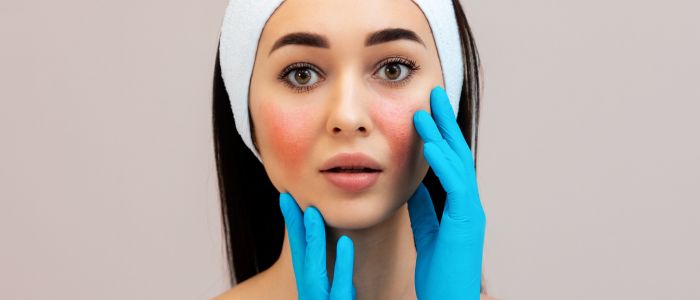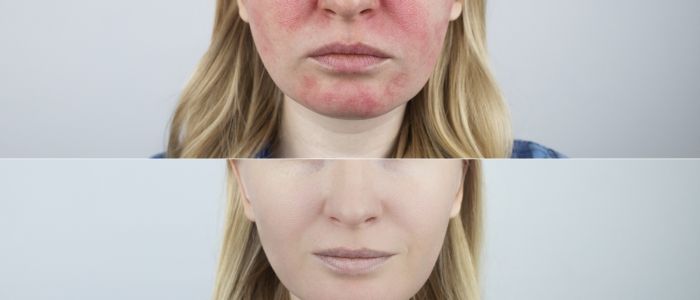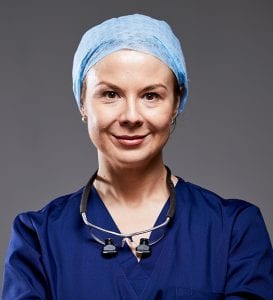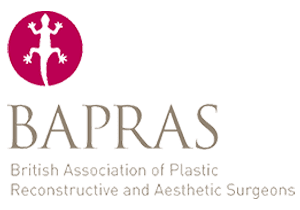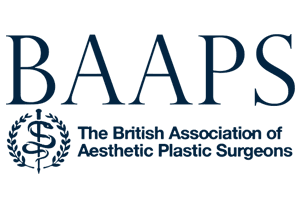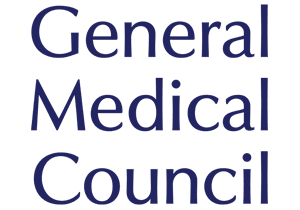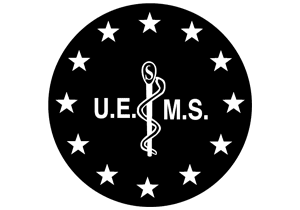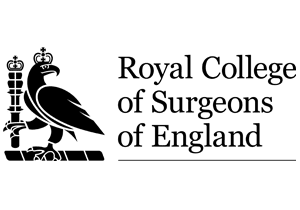
Table of Contents
- Solutions for Rosacea
- What Is Rosacea?
- What Causes Rosacea?
- Risk Factors
- From Diagnosis to Management
- Identifying and Avoiding Triggers
- Adopting a Gentle Skincare Routine
- Topical Treatments for Rosacea
- Oral Medications for Rosacea
- In-Office Procedures for Rosacea
- The Future of Rosacea Treatment
- Your Rosacea Action Plan
- FAQs about Causes and Treatment for Rosacea
- Further Reading about Procedures at Cheshire Cosmetic Surgery
Solutions for Rosacea
If you’ve ever noticed persistent redness on your face, particularly across your cheeks, nose, chin, or forehead, you might be experiencing rosacea. This common skin condition affects millions of people worldwide, yet it often goes undiagnosed or misunderstood. As a dermatologist specialising in skin health, Dr Dalia can offer you practical solutions to manage and treat rosacea effectively.
What Is Rosacea?
Rosacea is a chronic inflammatory skin condition that primarily affects the face. While it’s often characterised by facial redness, it can manifest in various ways and severity levels. You might experience:
- Persistent redness (erythema)
- Visible blood vessels (telangiectasia)
- Bumps and pimples
- Skin thickening, especially around the nose (rhinophyma)
- Eye irritation (ocular rosacea)
You should know that this is not just a cosmetic issue. For many, it can be a source of discomfort, both physically and emotionally. The good news is that with proper understanding and management, you can effectively control your rosacea and maintain healthy, comfortable skin.
What Causes Rosacea?
While the exact cause remains a topic of ongoing research, several factors are believed to contribute to its development and flare-ups:
- Genetics: If you have a family history of rosacea, you’re more likely to develop the condition.
- Immune System Dysfunction: An overactive immune response may contribute to the inflammation seen in rosacea.
- Demodex Mites: These microscopic mites that naturally live on our skin may be present in higher numbers in people with rosacea, potentially triggering inflammation.
- Blood Vessel Abnormalities: People with rosacea often have blood vessels that dilate too easily, leading to persistent redness.
- Environmental Factors: Sun exposure, extreme temperatures, and wind can exacerbate the symptoms.
- Lifestyle Factors: Certain foods, alcohol, stress, and exercise can trigger flare-ups in some people.
- Skin Barrier Dysfunction: A compromised skin barrier may make your skin more susceptible to irritants and inflammation.
It’s important to note that these factors can vary greatly from person to person. What triggers the condition in one individual may not affect another, which is why personalised care is crucial in managing this condition.
Risk Factors
While it can affect anyone, certain groups are more prone to developing the condition:
- Age: Rosacea typically appears after age 30.
- Gender: Women are more likely to develop rosacea, although men often experience more severe symptoms.
- Skin Tone: Fair-skinned individuals, particularly those of Northern or Eastern European descent, are at higher risk.
- Family History: If your parents or siblings have rosacea, you’re more likely to develop it.
If you fall into any of these categories and have noticed persistent facial redness or other symptoms, it’s worth consulting Dr Dalia for a proper diagnosis.
From Diagnosis to Management
Diagnosing rosacea is primarily based on clinical examination and your reported symptoms. There’s no specific test, which is why you should consult a dermatologist who can differentiate it from other skin conditions that may present similarly, such as acne or seborrheic dermatitis.
Once diagnosed, your journey will involve a combination of:
- Identifying and avoiding triggers
- Adopting a gentle skincare routine
- Using appropriate topical treatments
- Considering oral medications if necessary
- Exploring in-office procedures for more severe cases
Identifying and Avoiding Triggers
One of the most effective ways to manage rosacea is to identify and avoid your personal triggers. Common triggers include:
- Sun exposure
- Hot or cold temperatures
- Spicy foods
- Alcohol, particularly red wine
- Hot drinks
- Stress
- Intense exercise
- Certain skincare products
Keeping a diary of your activities, diet, and skin reactions can help you identify patterns and pinpoint your specific triggers. Once identified, you can take steps to avoid or minimise exposure to these triggers, significantly reducing the frequency and severity of flare-ups.
Adopting a Gentle Skincare Routine
When you have rosacea, your skin is more sensitive and prone to irritation. A gentle, consistent skincare routine is crucial for managing symptoms and maintaining skin health. Here are some tips:
- Cleanse gently: Use a mild, non-foaming cleanser twice daily. Avoid hot water and harsh scrubbing.
- Moisturise: Choose a fragrance-free, non-comedogenic moisturiser to help repair and protect your skin barrier.
- Sun protection: Apply a broad-spectrum sunscreen with at least SPF 30 daily, even on cloudy days.
- Be cautious with active ingredients: Introduce new products gradually and avoid harsh ingredients like alcohol, fragrances, and exfoliating acids.
- Choose rosacea-friendly makeup: If you wear makeup, opt for mineral-based products and green-tinted primers to neutralise redness.
Keep in mind that what works for one person may not work for another. It might take some trial and error to find the perfect routine for your skin.
Topical Treatments for Rosacea
Topical treatments can effectively manage rosacea symptoms. These are typically prescribed by a dermatologist based on your specific symptoms and severity:
- Metronidazole: This antibiotic helps reduce inflammation and redness.
- Azelaic Acid: This compound helps reduce inflammation and has antimicrobial properties.
- Ivermectin: Originally an anti-parasitic, this medication has shown effectiveness in treating rosacea, possibly due to its action against Demodex mites.
- Brimonidine and Oxymetazoline: These alpha-agonists work to constrict blood vessels, reducing redness for several hours after application.
- Topical Retinoids: In some cases, retinoids like tretinoin may be prescribed to help with skin texture and pimples associated with rosacea.
These treatments often take several weeks to show improvement, so patience and consistent use are key.
Oral Medications for Rosacea
In more severe cases or when topical treatments aren’t sufficient, oral medications may be prescribed:
- Oral Antibiotics: Doxycycline, in particular, is often used at a low dose for its anti-inflammatory properties rather than its antibiotic effect.
- Oral Isotretinoin: In severe cases, especially those with significant skin thickening, a course of isotretinoin may be recommended.
- Beta-blockers: In some cases, these may be prescribed to help manage flushing.
Always discuss potential side effects and interactions with Dr Dalia before starting any new medication.
In-Office Procedures for Rosacea
For persistent redness, visible blood vessels, or severe rhinophyma, in-office procedures can provide improvement:
- Laser Therapy: Laser treatments can target visible blood vessels and reduce overall redness.
- Intense Pulsed Light (IPL): This treatment can help reduce redness and improve skin texture.
- Electrocautery: This technique can be used to remove visible blood vessels.
- Surgical Procedures: In severe cases of rhinophyma, surgical techniques may be used to reshape the nose.
These procedures often require multiple sessions for optimal results.
The Future of Rosacea Treatment
Research into rosacea is ongoing, with scientists continually working to better understand the condition and develop more effective treatments. Some exciting areas of research include:
- Microbiome Studies: Investigating the role of skin bacteria in rosacea development and potential probiotic treatments.
- New Drug Formulations: Developing more effective and targeted medications with fewer side effects.
- Genetic Research: Identifying genetic markers for rosacea to potentially develop personalised treatments.
- Advanced Laser Technologies: Refining laser treatments for more effective and comfortable rosacea management.
As our understanding of rosacea evolves, so too will our ability to treat it effectively. Stay informed about new developments and discuss emerging treatments with Dr Dalia.
Your Rosacea Action Plan
If you suspect you have rosacea or have been recently diagnosed, here’s a step-by-step action plan to help you take control of your skin health:
- Consult Dr Dalia: Get a proper diagnosis and personalised treatment plan.
- Identify Your Triggers: Keep a diary to track potential triggers and patterns in your flare-ups.
- Develop a Gentle Skincare Routine: Work with Dr Dalia to find rosacea-friendly products that suit your skin.
- Be Consistent with Treatments: Follow your prescribed treatment regimen diligently, even when your skin looks better.
- Protect Your Skin: Always use sun protection and be mindful of environmental factors that may trigger flare-ups.
- Stay Informed: Keep up with new research and treatment options for rosacea.
- Seek Support: Connect with others who have rosacea and don’t hesitate to seek emotional support if needed.
FAQs about Causes and Treatment for Rosacea

Can rosacea affect areas other than the face?
While rosacea primarily affects the face, in rare cases, it can appear on other parts of the body. Some people experience rosacea symptoms on their neck, chest, scalp, or ears. However, these extrafacial manifestations are much less common and often occur alongside facial symptoms.
Is rosacea contagious?
No, rosacea is not contagious. You cannot catch rosacea from someone else or spread it to others through physical contact. It’s a chronic inflammatory condition that develops due to a combination of genetic and environmental factors, not an infectious disease.
Can children develop rosacea?
While rosacea is most common in adults over 30, it can occasionally occur in children and teenagers. Paediatric rosacea is rare but possible. It may be mistaken for other skin conditions, so if a child shows persistent facial redness or other symptoms, it’s important to consult Dr Dalia for a proper diagnosis.
Are there any dietary supplements that can help manage rosacea?
Some studies suggest that certain supplements may help manage rosacea symptoms. These include omega-3 fatty acids, zinc, and probiotics. Additionally, niacinamide (a form of vitamin B3) has shown promise in improving skin barrier function, which can be beneficial for rosacea-prone skin.
Can pregnancy affect rosacea symptoms?
Pregnancy can indeed affect the symptoms, although the impact varies from person to person. Some women experience an improvement in their rosacea during pregnancy, while others may see their symptoms worsen. Hormonal changes during pregnancy can influence skin condition and reactivity. Additionally, certain rosacea treatments may not be suitable during pregnancy, so it’s essential to work closely with Dr Dalia if you’re pregnant or planning to become pregnant.
Medical References for Rosacea Treatment
- Topical metronidazole. A review of its use in rosacea: https://pubmed.ncbi.nlm.nih.gov/7528496/
- Azelaic Acid 101: A Detailed Guide: https://www.everydayhealth.com/healthy-skin/azelaic-acid/guide/
- Soolantra (Ivermectin) 1% Cream: A Novel, Antibiotic-Free Agent Approved for the Treatment of Patients with Rosacea: https://pubmed.ncbi.nlm.nih.gov/25942661/
- Topical Oxymetazoline Hydrochloride Cream 1% for the Treatment of Persistent Facial Erythema of Rosacea in Adults: https://pubmed.ncbi.nlm.nih.gov/26882581/
- Clindamycin phosphate 1.2% and tretinoin 0.025% gel for rosacea: https://pubmed.ncbi.nlm.nih.gov/20000873/
Further Reading about Procedures at Cheshire Cosmetic Surgery
- Read more about Complete Guide to Eyelid Surgery
- Read more about Recovery after Dermal Fillers
- Read more about Treatments and Solutions for Facial Volume Loss
- Read more about How to Get Rid of Old Scars
- Read more about Treatments and Solutions for Skin Moles
- Read more about Causes and Treatment for Urticaria
- Read more about Causes and Treatment for Psoriasis
- Read more about Causes and Treatment for Nail Disorders
- Read more about Causes and Treatment for Melasma
- Read more about Causes and Treatment for Hyperhidrosis (Excessive Sweating)
- Read more about Causes and Treatment for Alopecia Areata
- Read more about Causes and Treatement for Acne
